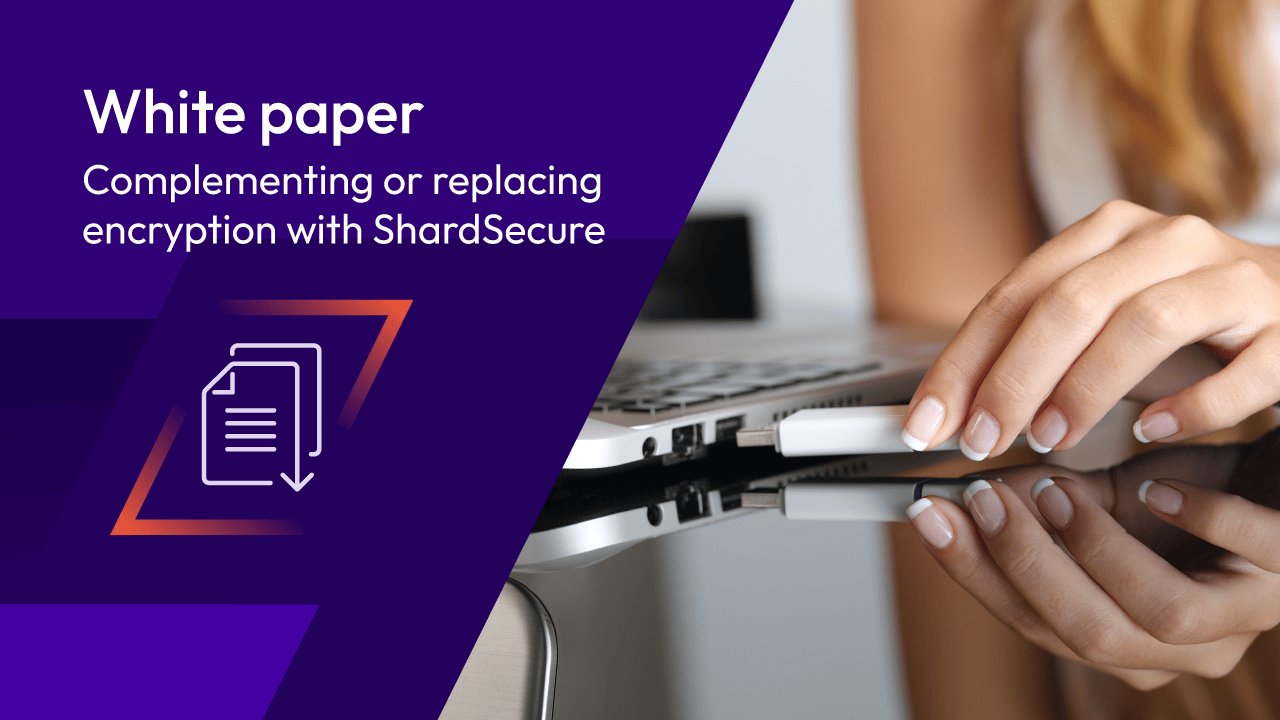Complementing or replacing encryption with ShardSecure
Encryption is the traditional approach for securing data at rest and has been the method of choice for many IT leaders. In fact, certain laws and regulations specifically require encryption, so for compliance reasons alone encryption will remain an important layer of defense.
However, human error, poor cyber hygiene, and challenges with key management can provide threat actors and rogue insiders with access to high-value data. Since encrypted data is stored whole, meaning that an entire file is stored in a single location, unauthorized parties can gain access to the entire file. At that point, encrypted files can be deleted, decrypted with a compromised key, re-encrypted with ransomware, or exfiltrated by a well-resourced adversary with enough time and computer power to try to break the encryption. Consequently, encryption itself is not adequate to deter data intrusion and breaches by highly determined nation states. Particularly in countries that are advanced in quantum computing that can crack encryption faster, the capacity of a well-resourced adversary to decrypt data should be taken seriously.
Government alerts and resources warn of the increase in crafty attacks and geopolitical risk and urge organizations to act swiftly to mitigate threats. Fortunately, organizations now can consider another approach to data protection that is often compared to encryption but offers significant advantages due to its innovative "Shred. Mix. Distribute" process to desensitize sensitive data. Microshard™ technology includes numerous capabilities to strengthen data protection, neutralize ransomware attacks, and maintain data availability and performance—and it is quantum-safe.


